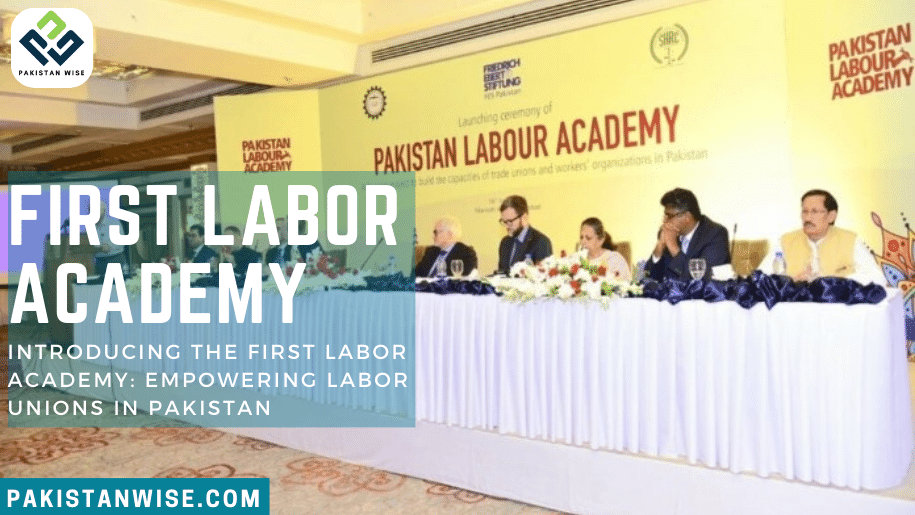The Friedrich-Ebert-Stiftung (FES), a non-governmental organization based in Germany, has taken a significant step towards empowering labor unions in Pakistan with the launch of the “First Labor Academy.” This initiative aims to enhance the efficiency and organizational capabilities of labor unions in the country, addressing the need for better implementation of labor laws and the promotion of workers’ rights.
Collaborating with the National Industrial Relations Commission (NIRC) and the Sindh Human Rights Commission (SHRC), FES Pakistan has paved the way for long-term academic learning and leadership education opportunities for trade unionists and labor activists in Pakistan. By establishing the Labor Academy, FES Pakistan aims to bridge the gap between existing labor laws and their practical implementation.
During the launch ceremony, Dr. Neils Hegewich, the Country Director of FES, shed light on the significance of the Pakistan Labor Academy (PLA) as a flagship project. The PLA seeks to provide comprehensive education and training programs that foster a better understanding of industrial relations, workers’ participation, labor laws, successful labor relations, social dialogue promotion, and the assurance of decent work in Pakistan.
In its initial phase, the Pakistan Labor Academy will organize a ten-day residential short certificate course. This course targets young male and female trade unionists, equipping them with the necessary knowledge and tools to actively engage in public debates, policy formulation, and the implementation of labor-related affairs. This initiative aims to empower labor representatives to advocate for workers’ rights effectively.
Speaking at the launch, Farhatullah Babar, a senior leader of the Pakistan People’s Party, emphasized the urgent need for labor law improvements and increased awareness among workers about their rights. Acknowledging the efforts of the Pakistan Labor Academy, both national and foreign speakers emphasized the importance of women’s participation in labor organizations and stressed the need to prioritize their social security and health within the government’s agenda.
The foundation ceremony of the First Labor Academy witnessed the participation of representatives from various labor unions, including the German ambassador to Pakistan. This presence highlighted the international recognition and support for the initiative, further emphasizing its potential to drive positive change in Pakistan’s labor sector.
In conclusion, the launch of the First Labor Academy in Pakistan by the Friedrich-Ebert-Stiftung marks a crucial milestone in empowering labor unions and promoting workers’ rights in the country. Through partnerships with key organizations such as the NIRC and SHRC, the Labor Academy aims to bridge the gap between labor laws and their practical implementation. By equipping trade unionists and labor activists with comprehensive education and training, the academy seeks to create a platform for effective advocacy, policy formulation, and implementation related to labor affairs. With the involvement of national and international stakeholders, this initiative holds the promise of fostering a more equitable and empowered labor sector in Pakistan.

